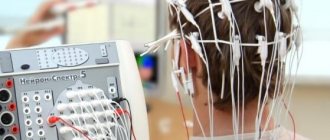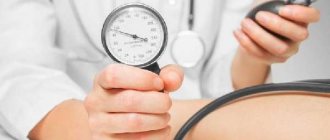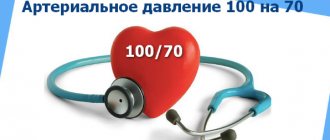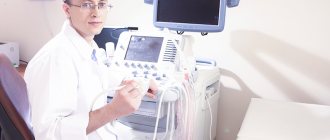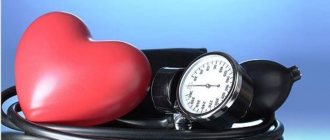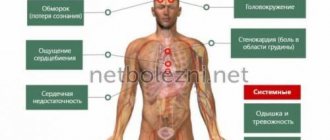Neurology
- a section in modern medicine dealing with the study of diseases of the nervous system - central and peripheral. A neurologist diagnoses and treats diseases of the nervous system, and also prescribes preventive treatment.
The structure of the human nervous system includes:
- Brain
- Spinal cord
- Nerve bundles
- Nerve plexuses
- Nerve endings and fibers
The entire system consists of nerve cells called neurons. If the functioning of neurons begins to malfunction, then inflammation occurs in the central nervous system (CNS), which can lead to serious problems for the entire body as a whole.
What diseases does a neurologist treat?
- cardiovascular - hemorrhagic and ischemic stroke;
- infectious - damage to the central nervous system due to syphilitic and AIDS infections, herpetic encephalitis;
- degenerative - Parkinson's and Alzheimer's diseases;
- traumatic - bruises of varying severity, concussions, diffuse damage to axons in traumatic brain injuries;
- pathologies of the cerebrospinal fluid system - persistent increase in intracranial pressure, hydrocephalus;
- demyelinating - Guillain-Barré syndrome, multiple sclerosis;
- helminthiasis - opistrochiasis, echinococcosis;
- oncological - gliomas, meningiomas;
- mycotic - candidiasis, cryptococcosis of the central nervous system;
- epileptic - primary (without involvement of the brain matter in the pathological process) and symptomatic epilepsy caused by traumatic brain injury, tumors;
- congenital - cerebral palsy.
Prognosis and prevention
With early treatment and prevention of complications, the prognosis is favorable. Vascular pathologies today are successfully treated with conservative and surgical methods, while maintaining the patient’s high quality of life.
Vascular diseases are best prevented by using medications that lower cholesterol levels, as well as products that contain polyunsaturated fatty acids that can prevent the development of atherosclerosis. It is recommended to adhere to the principles of a healthy diet, do not consume fatty and fried foods, and alcohol. It is advisable to quit smoking and start exercising to strengthen the heart muscle and prevent the development of many diseases, including obesity and hypertension. Moderate physical activity has a positive effect on the entire cardiovascular system.
After 30-35 years, check your cholesterol levels and monitor your blood pressure numbers. If symptoms of vascular disorders appear, begin treatment promptly before complete damage to the arteries and veins occurs.
Consultations with a doctor online Taking care of your health is a life priority for everyone.
Communicate with doctors online and receive qualified assistance without leaving your home. Try it Please note! The information on this page is provided for informational purposes only. To prescribe treatment, you must consult a doctor.
How does an appointment with a neurologist proceed?
The initial consultation includes a survey and neurological examination of the patient. During the conversation, the doctor listens to complaints and asks additional questions. During the examination, reflexes and the presence of external signs are checked - symmetry of the shoulders and limbs, disorders of posture and motor ability. For a professional neurological examination, special instruments are used, the set of which depends on the nature of the disease. It could be:
- hammer (reflexes);
- needle, brush/cotton wool (deep and superficial pain sensitivity, respectively);
- tuning fork (susceptibility to vibration);
- compass (sensitivity at different points of the body);
- pens, pencils, keys (object sensitivity);
- dynamometer (muscle strength measurement).
What symptoms should you consult a neurologist for?
It is important to know that disturbances in the functioning of the central nervous system occur slowly and imperceptibly. For this reason, many people are not even aware of the serious danger of developing a particular disease, for example paralysis, psychosis or deterioration of intelligence. In older people, the risk of developing various diseases associated with the nervous system increases significantly.
If you notice one of the following symptoms, immediately contact a neurologist:
To avoid various types of diseases of the nervous system, you need to lead a healthy lifestyle and follow basic rules:
Diagnostic methods
Examination using instrumental and (less often) laboratory methods is an integral part of the diagnosis of neurological diseases and their complications. The choice of a specific technique is carried out taking into account the nature of the violations. In modern diagnostics, one or more studies from the following list may be used:
- magnetic resonance imaging, or MRI. The procedure is performed with or without contrast; a contrast tomogram has more accurate results;
- computed tomography, or CT scan, of the brain;
- echoencephalography (ECHO-EG), positron emission tomography (PET/CT);
- angiography of cerebral vessels;
- X-ray, ultrasound of the spinal column;
- myelography;
- ultrasound with Doppler (Doppler scanning);
- electroneuromyography (EEG);
- gamma encephalography (EEG).
For radiculitis and intervertebral hernias, a lumbar puncture may be prescribed. A number of diseases require blood and urine tests.
Treatment methods
Treatment of blood vessels can be conservative or surgical. Medical tactics depend on the severity of the clinical manifestations of the disease, the patient’s age and general health. When the veins of the extremities are affected, experts prescribe the use of compression hosiery and local agents with a venotonic effect.
It is important to reduce the load on the legs and eliminate the effects of predisposing factors. Shoes should be as loose and comfortable as possible. For varicose veins, the phlebologist must prescribe therapeutic exercises and recommends resting with the leg end elevated at least several times a day to ensure blood flow and normal functioning of the lymphatic system.
For atherosclerosis and high cholesterol, it is recommended to follow a diet limited in fats and simple carbohydrates. Medicines prescribed include nicotinic acid, statins, bile acid sequestrants and other drugs that inhibit the formation of cholesterol plaques and restore fat metabolism.
With the onset of menopause, the risk of developing atherosclerosis in women increases sharply. To prevent vascular damage, hormone replacement therapy is prescribed. The entry into the body of a small amount of estrogens plays a protective role, preventing the occurrence of angina pectoris, coronary heart disease, and atherosclerotic damage to the vascular walls.
If conservative therapy is ineffective and there is a threat to the patient’s life, specialists perform surgical treatment. It involves installing stents at the site of pathological narrowing of the vessel. In case of atherosclerosis of the heart vessels and an increased risk of myocardial infarction, vascular surgeons perform coronary artery bypass grafting.
Principles of treatment
What does a neurologist do when there is already a diagnosis? Begins to treat the disease using different methods.
Medicines
To relieve acute pain and inflammation, medications are prescribed, and maintenance therapy is provided if necessary. Problems with blood vessels, concussions, epilepsy, and conditions after surgery almost always require medication.
Manual therapy
Manual therapy is a treatment with hands (from the Latin manus - hand), which helps eliminate functional blocks and muscle spasticity, normalize microcirculation and range of motion. Widely used for diseases of the joints and spine, neuroses.
Massotherapy
One of the most effective methods of treating neurological diseases, along with therapeutic exercises and physiotherapy. Using special techniques, the specialist gently influences the patient’s body to stimulate the body’s natural recovery processes.
Physiotherapy
Through physical techniques, it is possible to accelerate tissue regeneration processes, improve nerve conduction, thereby reducing the intensity of pain and inflammation.
Reflexology
The essence of the method is the impact on bioactive points to restore the disturbed balance. It is based on the idea of the body as an integral system, when one of its elements fails, others suffer.
Traction traction
Used to stretch limbs and muscles in case of bone fractures and diseases of the spine.
Kinesitherapy
“Movement treatment” is how this term is translated from scientific language. This is a type of physical therapy that combines medical, physiological, and biochemical aspects.
Osteopathy
This is a method similar in effectiveness to massage and manual techniques. But, unlike them, it affects the very cause of the disease, helping to restore the well-coordinated functioning of the body.
Therapeutic blockades
For severe pain that cannot be relieved with conventional medications, the sore spot is injected. Injections are made directly into the painful area, hitting the nerve endings. The procedure relieves a person from pain in a matter of minutes for a period of half an hour to several days.
Which doctors should I contact if I have constant weakness and frequent dizziness?
Friends, expert in the “What kind of doctor do I need?” column. continues to answer your questions.
In this section, you can describe your symptoms to your doctor and get advice on which specialist you should contact.
To get a useful answer you need:
briefly outline the main symptoms;
make the question as specific as possible;
write a question in the comments to this column.
Question: Good afternoon! My left knee hurts, it is difficult to bend my leg, there is no swelling. on the inner lateral surface there are periodic sharp, pulling pains, as if caught with a fishing hook and pulled upward. Feels like a tendon or ligament, but not a bone. Now similar symptoms have begun to appear in the right leg, but not in such an acute form. I don’t know who to turn to, a surgeon or an orthopedist. Thank you!
First of all, you need to be examined by an orthopedic traumatologist. An examination will probably be prescribed - MRI and/or ultrasound of the knee joint. If the traumatologist doesn’t see anything “out of the ordinary” after the examination, he will send you to a neurologist.
Symptoms can indicate both damage to the ligamentous apparatus of the knee joint and neurological problems. An in-person examination is required.
___________________________________________________
Question: Good afternoon. Please tell me which doctor to contact. Frequent dizziness (in the forehead area), tinnitus, and occasionally low blood pressure.
Dizziness in the forehead area? Unusual! Make an appointment with a neurologist. He will tell you what examinations you need to undergo - MRI of the brain and cervical spine, MSCT of the brain, ultrasound of the vessels of the head and neck, fundus examination, etc.
Only a doctor during an examination can decide what exactly you need.
Low blood pressure and dizziness can occur if you move little, sit in front of a computer all day and don't drink enough fluids. In such cases, joint exercises and correction of the drinking regime help.
But you need to start with a consultation with a neurologist to rule out pathology that requires therapy.
____________________________________________________
Question: Hello. Tell me who to contact. I feel constant weakness, lack of strength, lack of mood. Even after rest and sleep, strength does not increase. That is, I get up tired in the morning, although I sleep about 8 hours every day. Hemoglobin is normal, I thought about it, because physically it is very difficult to do anything, dizziness immediately begins. Everything is complicated by the fact that I have a tumor in my brain, neurosurgeons say it’s an astrocytoma, not dangerous, you just need to observe, but the neurologist won’t even allow me to take a course of vitamins, because... they can cause tumor growth. Tell me who to contact or what additional tests to take.
The fact that you do not have a dangerous formation in the brain does not mean that you only need a neurosurgeon and no one else for observation. Of course, you need to undergo the necessary examinations to monitor the situation - once every six months or once a year - as prescribed by your doctor.
In addition, I recommend that you contact a therapist and undergo a full examination - a general blood test, biochemistry, fluorography of the lungs, ultrasound of internal organs, and anything else that the therapist deems necessary.
If everything is in order, you need to consult a psychotherapist. This is how hidden depression can manifest itself. Perhaps this is how you react to being diagnosed with an astrocytoma. In this case, it will be useful, in addition to treatment with a psychotherapist, to engage in some oriental sports - yoga, qigong.
Elena Bobyak
Photo depositphotos.com
The author's opinion may not coincide with the opinion of the editors.

